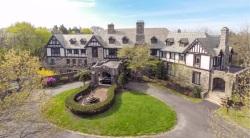
With so many non-gifted students with high school diplomas lagging behind the rest of the world in math and science, not to mention literacy, why are gifted programs needed? Can’t these children undertake enriched learning on their own, or shouldn’t it be the responsibility of their parents? Why not just join an after-school chess club or take art lessons? Why should gifted education receive a piece of the precious school budget pie?
These are difficult questions to answer, and especially pointed when they come from parents of children who are struggling with learning or behavioral differences. If extra money is to be spent in schools, why shouldn’t the bulk of it go to those who can’t meet standards for average learners? And aren’t teachers spread thin enough anyway?
Gifted education, however, benefits not only the gifted child, but the learning environment of the entire community. When their educational needs are met, exceptional children can help contribute to a kinetic and diverse learning environment, often in unexpected ways.
The history of gifted education is long enough to have a strong comparison of the performance of exceptional students in gifted development education to those who are not. The truth is that investing in gifted education pays dividends to the students far beyond their elementary or secondary school experience.
Let’s have a discussion about the necessity of gifted programs.
Gifted Programs, Education & Drop Out Prevention
Some assume that students who perform poorly in an average structured school environment must have a learning disability, or are suffering the effects of an unstable home. Others point to behavioral problems or simply chalk dropping out due to laziness. Some students, however, drop out because they are not academically challenged. They become bored in the classroom and with interactions concerning average peers. Alternatively, gifted students may drop out because they are eager to ply their gifts in the working world, or because their gift is not addressed in a traditional school environment. These kinds of students might excel in work with animals, mechanical abilities, or kinetic performance.
While average students certainly deserve the best education they can receive, gifted students do as well, just as much as students who are learning disabled—especially because a fairly significant number of gifted students are in fact simultaneously learning disabled. Simply penning them off in after school activities or, worse, putting them to work as “teacher’s assistant” does not maximize their potential. A gifted student whose intellectual and emotional needs are being met, particularly at an early age, is rarely at risk for dropping out, and, by staying in their school environment, is provided with incentive for making the most of their gifts.
Early Identification of Giftedness
Studies show that students whose gifts are encouraged early in their intellectual development and nurtured in a healthy way as they continue to grow tend to excel in the arena of their giftedness. They then make outstanding contributions in their fields by the time they are mid-career. Former students in gifted programs include winners of the Fields Medal (for outstanding work in mathematics), notable book authors, inventors, and STEM standouts.
Since the definition of giftedness is continually expanding as we come to better understand neuroscience and forms of creative expression, early identification can help meet a student where he or she is as soon as possible. Nurturing gifts in elementary education or even preschool gives exceptional students more time to adjust to their different way of thinking, especially amongst peers who are of average ability. Learning to work with their giftedness, especially in the face of asynchronous development, will teach exceptional children early on how to more effectively socialize with both children and adults and maximize their abilities not only as working adults, but in the classroom. Managing their learning tendencies and expectations in a nurturing environment is essential to the continuing development of gifted children.
In short: The earlier gifted children are identified and cultivated, the further they may go.
Gifted Children Thrive Around Other Gifted Children
An argument against gifted education is that by isolating gifted children, their average or learning-disabled peers are deprived of their example and inspiring intellect. That sounds plausible on its face, but the truth is that gifted children struggle when moored to peers who are not also exceptional.
While it’s not necessary to stay in gifted education for the entirety of the school day, gifted students flourish when placed in educational and social company of other exceptional students. In addition, gifted students are often bullied for their outstanding academic performance and frustration with their peers, and placing them with those who may experience similar feelings of frustration and social inadequacy is beneficial.
Challenging gifted children to complete tasks and share information with other gifted children not only sharpens communication skills, it boosts the ability of the exceptional to practice abilities in which they show average capacity. Collaborative learning such as this helps gifted kids to build confidence and serves them well in later grades, as well as the working world.
Advanced Placement, Grade-Skipping & Tracking Aren’t the Answer
When gifted education first began to emerge, the definition of it was highly limited. Usually, gifted education targeted students who were “good at school.” These students performed well on standardized tests and showed above-average intelligence, but as their education and careers wore on, while they may have been contentious and high achievers, they may not have distinguished themselves in any particular way.
These are the students who probably benefit the most from AP courses, skipping grades, and connected course placement across the curriculum. It’s also true that gifted students will also likely benefit from such courses or measures; after all, AP courses present college-level coursework in a challenging setting.
However, none of these are a match for gifted education. A gifted program sees to the social and emotional development of its students and enriches the development of those whose gifts are not measured on standardized testing, such as artistic ability, engineering aptitude, or leadership skills. This requires different resources, teacher training, and administrative backing.






